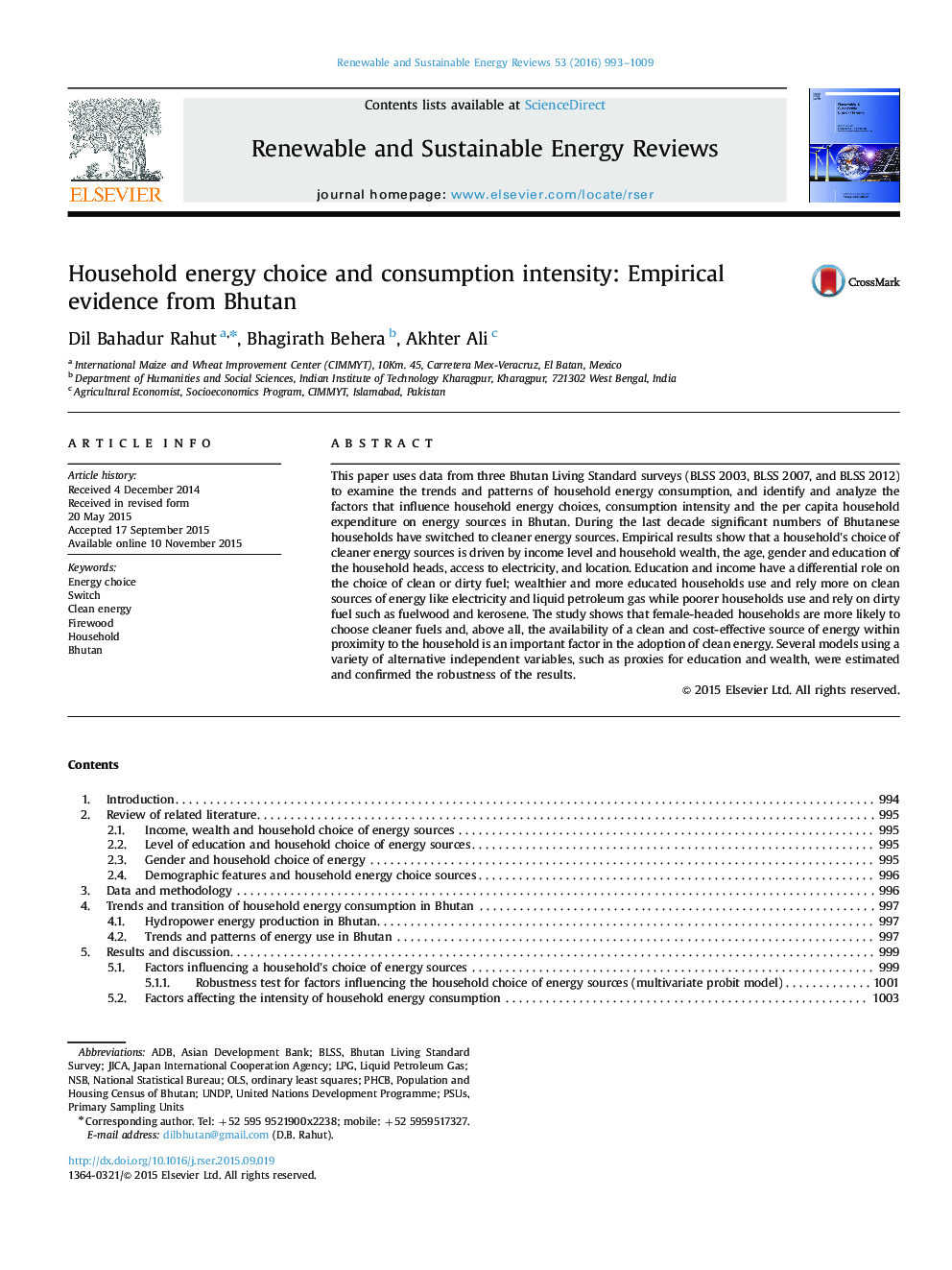| کد مقاله | کد نشریه | سال انتشار | مقاله انگلیسی | نسخه تمام متن |
|---|---|---|---|---|
| 8115622 | 1522332 | 2016 | 17 صفحه PDF | دانلود رایگان |
عنوان انگلیسی مقاله ISI
Household energy choice and consumption intensity: Empirical evidence from Bhutan
ترجمه فارسی عنوان
انتخاب انرژی خانگی و شدت مصرف: شواهد تجربی از بوتان
دانلود مقاله + سفارش ترجمه
دانلود مقاله ISI انگلیسی
رایگان برای ایرانیان
کلمات کلیدی
LPGUNDPNSBOLSBLSSjICAJapan International Cooperation Agency - آژانس بین المللی همکاری بین المللی ژاپنClean energy - انرژی پاکADB - بانک انکشاف آسیاییAsian Development Bank - بانک توسعه آسیاUnited Nations Development Programme - برنامه توسعه سازمان ملل متحدBhutan - بوتانSwitch - تعویضordinary least squares - حداقل مربعات معمولیHousehold - خانوارFirewood - هیزمLiquid petroleum gas - گاز مایع
موضوعات مرتبط
مهندسی و علوم پایه
مهندسی انرژی
انرژی های تجدید پذیر، توسعه پایدار و محیط زیست
چکیده انگلیسی
This paper uses data from three Bhutan Living Standard surveys (BLSS 2003, BLSS 2007, and BLSS 2012) to examine the trends and patterns of household energy consumption, and identify and analyze the factors that influence household energy choices, consumption intensity and the per capita household expenditure on energy sources in Bhutan. During the last decade significant numbers of Bhutanese households have switched to cleaner energy sources. Empirical results show that a household׳s choice of cleaner energy sources is driven by income level and household wealth, the age, gender and education of the household heads, access to electricity, and location. Education and income have a differential role on the choice of clean or dirty fuel; wealthier and more educated households use and rely more on clean sources of energy like electricity and liquid petroleum gas while poorer households use and rely on dirty fuel such as fuelwood and kerosene. The study shows that female-headed households are more likely to choose cleaner fuels and, above all, the availability of a clean and cost-effective source of energy within proximity to the household is an important factor in the adoption of clean energy. Several models using a variety of alternative independent variables, such as proxies for education and wealth, were estimated and confirmed the robustness of the results.
ناشر
Database: Elsevier - ScienceDirect (ساینس دایرکت)
Journal: Renewable and Sustainable Energy Reviews - Volume 53, January 2016, Pages 993-1009
Journal: Renewable and Sustainable Energy Reviews - Volume 53, January 2016, Pages 993-1009
نویسندگان
Dil Bahadur Rahut, Bhagirath Behera, Akhter Ali,
